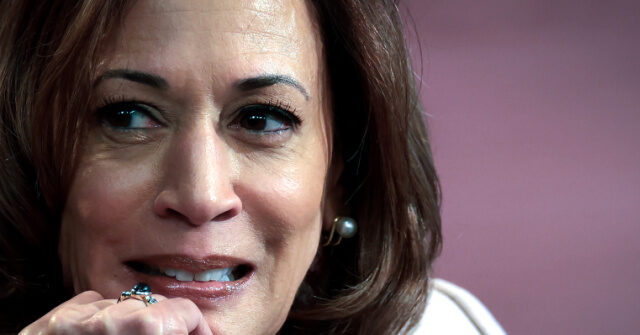During a recent town hall on CNN, Vice President Kamala Harris addressed questions regarding her strategy to combat price gouging in grocery prices, particularly in emergencies or crises. Her comments come in light of ongoing high grocery prices that have persisted for years. Harris emphasized the necessity for accountability from companies that exploit the desperation of American consumers during such times. While acknowledging the significance of the issue, she pointed out that, contrary to the actions of a minority of businesses, most companies do not engage in price gouging practices. Her remarks were in response to host Anderson Cooper’s inquiries about how her proposed measures could address the broader issue of consistently high grocery prices, suggesting that the focus should also be on systemic factors affecting pricing.
In her response to Cooper, Harris highlighted the reality of price inflation in specific states, such as Georgia, North Carolina, and Florida, underscoring her previous experience as attorney general in California, where she actively tackled similar issues. She contended that a careful examination of pricing in relation to supply chain disruptions, particularly during the COVID-19 pandemic, reveals a troubling trend among certain companies that manipulate market situations for profit. Harris’s argument centered on the need for regulatory measures to deter such exploitative behavior and to protect consumers from unjustified price hikes during crises.
Throughout her remarks, Harris sought to position her plan not merely as a reaction to the current grocery price situation but as a proactive stance toward a broader economic challenge that impacts American families. By advocating for accountability measures, she aimed to foster trust among consumers that their government is responsive to injustices in the market. Acknowledging that the economic landscape is complex, she maintained that her approach would help safeguard essential goods for those in urgent need, reinforcing her commitment to addressing the struggles faced by ordinary Americans in the face of corporate practices that might undermine their financial well-being.
Moreover, her comments opened a wider discussion on economic policy and its implications for consumers, particularly in light of her criticisms of former President Donald Trump’s tariff policies, which she argued contributed to economic strain. By connecting these tariffs to price increases, Harris illustrated the cascading effects of political decisions on everyday expenses, enhancing her argument that political leaders must consider the implications of their policies on the practical realities faced by citizens. This line of critique aimed to paint a stark contrast between her administration’s intentions and the past administration’s economic strategies.
As the conversation unfolded, it became clear that Harris was leveraging her platform not only to spotlight price gouging but also to weave a narrative about a government that prioritizes accountability and consumer protection. Her approach indicated an understanding of the broader issues at hand, emphasizing that while immediate interventions are essential, long-term solutions must also address the root causes of price increases, thereby fostering a more stable economic environment for American families. This multifaceted approach speaks to her administration’s awareness of the complexities of the current economic landscape.
In conclusion, Vice President Harris’s recent town hall appearance served as an important venue for addressing pressing economic concerns surrounding grocery prices and the issue of price gouging. By advocating for accountability measures, critiquing previous economic policies, and emphasizing her commitment to support American consumers, Harris presented a vision for a fairer economic landscape. Her remarks highlight the need for continued dialogue on these vital issues as the 2024 presidential election approaches, positioning her as a candidate focused on the economic realities affecting everyday citizens.

